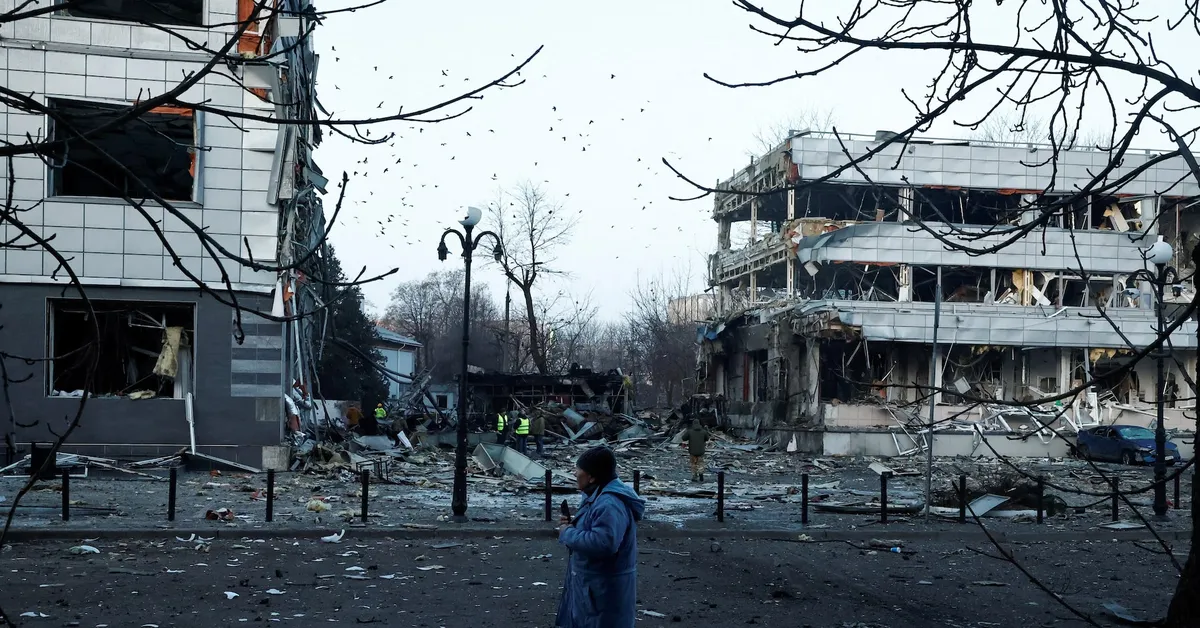
WASHINGTON/PARIS, Feb 13 (Reuters) - U.S. President Donald Trump has pledged a swift resolution to the ongoing Ukraine war. However, as talks are set to begin, his approach, reminiscent of his book "The Art of the Deal," might have inadvertently complicated negotiations by sacrificing key leverage.
Since assuming office on January 20, Trump has engaged in separate discussions with Russian President Vladimir Putin and Ukrainian President Volodymyr Zelenskiy. He has directed U.S. officials to initiate talks aimed at ending the nearly three-year-long conflict.
These discussions coincided with remarks from Defense Secretary Pete Hegseth in Brussels. Hegseth informed Ukraine's military allies that reverting to Ukraine's pre-2014 borders—prior to Russia's annexation of Crimea—was unrealistic. Furthermore, he stated that the U.S. does not envision NATO membership for Kyiv as part of a viable solution and clarified that U.S. troops would not participate in any security presence in Ukraine.
Michael McFaul, former U.S. ambassador to Russia under President Barack Obama, expressed skepticism about Trump's strategy towards Russia and Ukraine. He questioned the rationale behind giving Russian President Putin concessions, such as Ukrainian land and NATO exclusion, before negotiations commence. McFaul noted on social media platform X, "I've negotiated with the Russians. You never give up anything to them for free."
Russia occupies approximately a fifth of Ukraine and has demanded that Kyiv cede territory and adopt a neutral stance in any peace agreement. Conversely, Ukraine insists on Russia's withdrawal from occupied territories and seeks NATO membership or equivalent security guarantees to prevent future aggression from Moscow.
Putin has reiterated Russia's openness to talks while emphasizing that Moscow aims to achieve its objectives of Ukraine's demilitarization and neutrality. Despite the Trump administration's prior signals of not supporting all of Ukraine's goals, statements by Hegseth and Trump have unsettled European allies.
Former Lithuanian Foreign Minister Gabrielius Landsbergis responded on X to Hegseth's comments, stating: "No NATO membership, no boots on the ground? Sounds like abandoning Ukraine." These remarks come ahead of the Munich Security Conference, where political and military leaders will gather later this week.
When questioned if Hegseth's statements had diminished U.S. leverage, Trump assured reporters, "I'm backing Ukraine."
Stephen Wertheim, a senior fellow at the Carnegie Endowment, interpreted Hegseth's comments as a "concession to reality." According to Wertheim, Hegseth's remarks do not imply U.S. recognition of occupied Ukrainian territories as Russian but rather suggest that ruling out NATO membership signals to Russia that a realistic settlement might be achievable.
Since the conflict's onset in February 2022, Trump's predecessor, President Joe Biden, along with European allies, has consistently demanded Russia's withdrawal and hinted at potential NATO membership for Ukraine. The U.S. and Europe have provided Ukraine with substantial military aid.
Russia has faced diplomatic isolation at the United Nations, where the General Assembly has repeatedly denounced Moscow's invasion of Ukraine and demanded troop withdrawal.
The Kremlin announced that Putin and Trump have agreed to meet, with Putin extending an invitation for Trump to visit Moscow. Such a trip would significantly bolster the Russian president, who faces an International Criminal Court arrest warrant due to his actions in Ukraine.
Brett Bruen, a former foreign policy adviser in the Obama administration, compared Trump's agreement to meet Putin to his earlier summits with North Korean leader Kim Jong Un, which aimed to curb Pyongyang's nuclear program. Bruen remarked, "This is the kind of stuff you should get concessions for," suggesting that demands should include freeing Americans and ceding Ukrainian territory.
Trump's discussions and Hegseth's remarks coincided with a visit to Kyiv by U.S. Treasury Secretary Scott Bessent. During his visit, Bessent proposed a minerals deal between Kyiv and Washington as a post-war security measure. Zelenskiy expressed readiness to facilitate U.S. investment in Ukraine's mineral resources.
Trump indicated that such a minerals deal could provide security for U.S. funding, stating, "I told Biden, I said: 'You ought to be asking for either a loan or some kind of security, like their oil and gas or something for the money.'
John Herbst, former U.S. ambassador to Ukraine, viewed Bessent's visit positively, noting, "Trump is talking about exchanging American weapons for Ukraine's minerals. So this is a vehicle under Trump's logic for sending weapons to Ukraine. That's a big deal and very positive."
However, a hasty agreement on uneven terms could set a dangerous precedent. British lawmaker and former foreign secretary James Cleverly cautioned against initiating negotiations by outlining concessions, emphasizing, "Giving the impression that invasion pays off is not a strong move. Regimes are watching closely. Let's send the message that violence and aggression don't win out. I stand with Ukraine," he posted on X.
Sign up here.
Additional reporting by Matt Spetalnick and Jonathan Landay in Washington. Writing by Michelle Nichols; Editing by Don Durfee and Diane Craft.